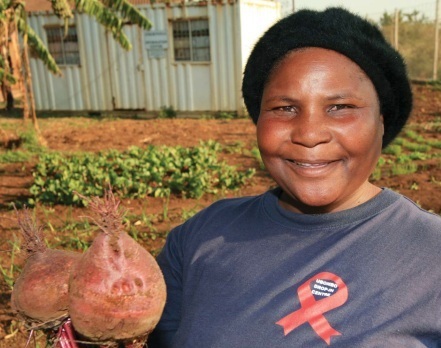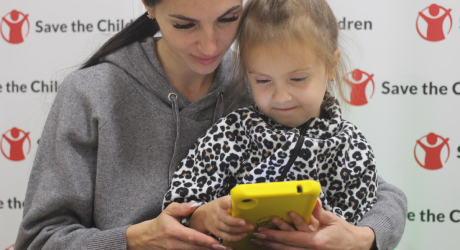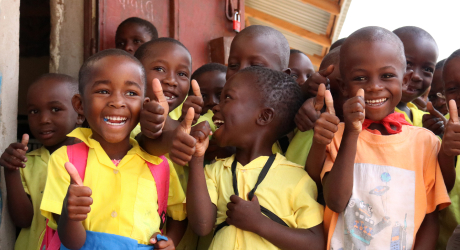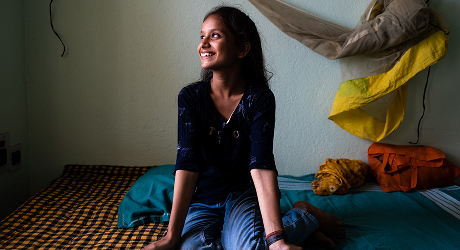Footprints Project
Since 2005, travelers like you have helped us change the world through micro-donations.

-
A total of
14963
Travelers
-
donated
$34183.76
(100% funded) -
to help improve
Food Security
-
in
South Africa
This project ensures that hundreds of people will receive food from veggie gardens planted in homes, schools and communities,particularly people who can’t grow food for themselves — like orphans, vulnerable children, the sick, the elderly and the desperately poor. Additional Agricultural training helps strengthen farmers’ groups with improved management skills and provide for advocacy work to help to access more government support.
Project activities and outcomes
Throughout 2012, local program partner the KwaZulu-Natal Regional Christian Council (KRCC), was granted funds to create 10 community food gardens.
They erected 4 new vegetable 'tunnels' and 4 water harvesting tanks which were set up in 4 schools, 3 primary schools (Saroni, Mathibelana and Donsintaba) and 1 secondary school, Bagibile High School.
The new tanks are more durable than plastic tanks and also environmentally friendly. This was achieved with training assistance from Operation Hunger and the Department of Water Affairs, who trained the women from the garden groups to successfully build the tanks on their own.
KRCC representatives also attended a workshop on "agro-ecology". Participants reported that the training workshop was beneficial as this style of farming practice takes into consideration the environment and the quality of produce. The organization planned to subsequently visit Biowatch, to learn further farming skills.
Project challenges
It emerged that women working on community gardens needed ongoing support to keep their projects running. Most of the garden groups had committees that were not functioning, and needed assistance to elect new people, provide clarity around the functions of the committees and revive the spirit of togetherness and continuity.
Additionally, groups were advised on financial management of their veggie garden profits, as they need to re-invest in new inputs to sustain production levels.
Following this work, these groups are now functioning well and some of them have managed to re-plant using profits from their previous production.
Additionally, in Thengela there was a disaster where wild fire burned the tunnels and everything that was in the garden. As this garden was feeding a lot of terminally sick and orphaned children, KRCC are checking on the group, and communicating with Mthonjaneni municipality to see whether they can provide assistance.
Project impact
Improving food security and nutrition are long terms goals. To understand how KwaZulu-Natal Province is changing, a nutrition baseline survey was conducted amongst 2,314 district households. The methodology used was a cell-phone technology survey which was found to be a quick way of collecting and analyzing data.
A brief overview of the results:
- Education level of the main respondent (people tasked with handling and preparing food in the household) 26.2% have elementary/primary level, 49.9% have high school education
- Main sources of income: 55.5% depend on social grants. 5.5% have no source of income at all.
- Total monthly income: almost half the respondents earned below R1000 (~USD$115), placing them below the poverty line.
- Main source of food: More than 80% rely on grocery stores, Less than 10% from self grown gardens
- Respondents growing their own vegetables: 37% of respondents grow their own vegetables versus KwaZulu average of 23% and National average of 22%. (Possibly attributable to the impact of local food security programs)
- Number of meals per day: 71% went to bed without eating any evening meal at least once in previous 30 days. Only 733 out of 2341 respondents reported that they had a consistent supply of water.
- Food types: Regular consumption of: fruit 7%, meals with vegetables 11,8%, soya 6%, starch 50%. People who ate meat at least once in last 30 days was 95%, although beans were the main source of protein.
The results from the Household Nutritional Survey will be used to help make better programs.
Oxfam's strategy in KwaZulu-Natal, South Africa
Oxfam Australia has worked in South Africa since 1999, building better lives for poor rural communities and marginalised people. The uMkhanyakude Partnership (Food Security) Program focuses on livelihoods and food security. The Program was started in 2005 with the aim of strengthening community food and nutrition security responses within the context of HIV and AIDS in the uMkhanyakude District, KwaZulu-Natal, South Africa.
Traveling soon? When you buy travel insurance with us, you can make a contribution towards a cause you care about.
Get a quote






